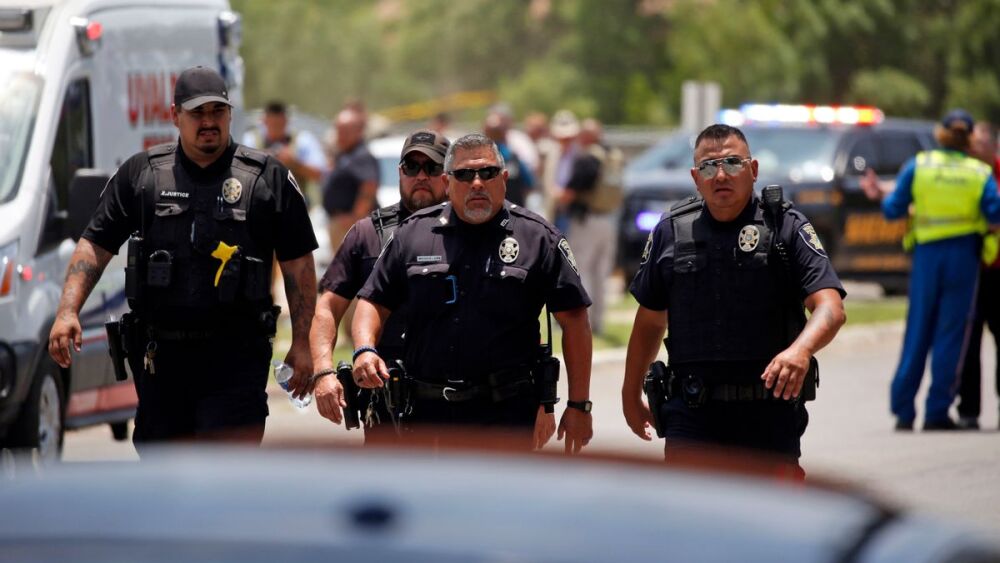By Nathan Calvert
As the investigation by Texas DPS brings more insight into the Uvalde school shooting in May 2022, little has emerged to curb the outrage from both the public and law enforcement veterans on the response to this tragedy. Initial reports left many questions that we are only now getting answers to as the findings of investigations by the State of Texas are being released.
What we know so far shows a response led by an agency and school system riddled with complacency and neglect regarding emergency preparation. In the aftermath of this tragedy, every campus-based law enforcement agency must examine its active shooter response training and response protocols to a school shooting.
What can we do?
In the same way that the University of Texas tower shooting in 1966 sparked the birth of a nationwide movement for cops on campuses and the Columbine High School shooting in 1999 changed active shooter response training, we must learn from the immediate lessons identified by the Uvalde response.
Here are three changes that must be considered:
- School administrators must consider the value of a strong police department. In almost a decade of policing multiple college campuses, the most common phrase I have heard when police departments try to expand and meet new threats is, “Well, surely nothing like that will ever happen here.” On average, campus police departments are smaller than city departments serving similar populations. Campus agencies offer lower pay and fewer benefits, and attract fewer candidates despite requiring more experience and advanced training to keep up with federal mandates like Title IX, the Clery Act, and FERPA, which non-campus law enforcement does not have to deal with. School administrators must understand that not providing adequate resources to a police department hinders public safety, and in the aftermath of Uvalde, school leadership may very well be held accountable for failing to prepare for the worst.
-
Campus police must not ignore training and must know their campus. In the case of Uvalde, it was obvious the scene commander had forgotten basic procedures taught nationwide when it comes to active shooter response. That being said there was also a disturbing lack of awareness of the school building itself by members of the school district police department.
According to a recent briefing to the Texas State Senate on the investigation by Texas DPS, the fact that the classroom had windows that could be utilized was not discussed until over a half-hour into the incident; attempts to enter the room were halted because a key was not available to unlock the door; and even some evidence surfaced stating that the door to the classroom where the shooter was barricaded did not lock from the inside.
To some the issue with the key is inexcusable. A police officer employed by a school should have keys to every door on the campus as a matter of safety and efficiency. There is also no excuse for not being familiar enough with a classroom that you are unaware of details like window access. Campus police should have a tactical advantage in their familiarity with the campuses they work on. This training should also extend to neighboring agencies that will ultimately respond as backup. They are not going to be able to replace the officer at the school in terms of familiarity with the building but being able to coordinate because of shared training is always going to provide an advantage.
- Everything must be done with safety in mind. Schools should not neglect the small details in preparing for an emergency. In Uvalde, investigators found multiple doors unlocked or malfunctioning and able to be opened from the outside even as the school was under lockdown. Early in the investigation, there was a question as to whether a teacher had propped open the door the shooter entered through, or if the door simply malfunctioned when it was closed and did not lock properly. Ask a police officer on any college campus in America and they will tell you that there are doors on their campus that malfunction and require extra work to secure. These are usually seen as smaller details, but again, as we have learned from Uvalde, the smallest details are the ones we need to learn from.
In the wake of tragedy, it is important to learn and move forward. It is often considered a failing in American law enforcement that we wait until tragedy strikes before we address the dangers facing our community. It is equally true though that throughout our history, American law enforcement has never failed to learn and innovate with passionate devotion to our communities.
Click here for additional analysis of the Uvalde school shooting
About the author
Nathan Calvert is an 8-year veteran of law enforcement with experience as a police officer at multiple schools in the state of Alabama. During his career, he has served as a patrol officer, investigator, and supervisor in a campus setting and has assisted campus police across the state in investigations and training. Nathan has worked as an advocate for expanded law enforcement training within the universities and colleges of Alabama.


